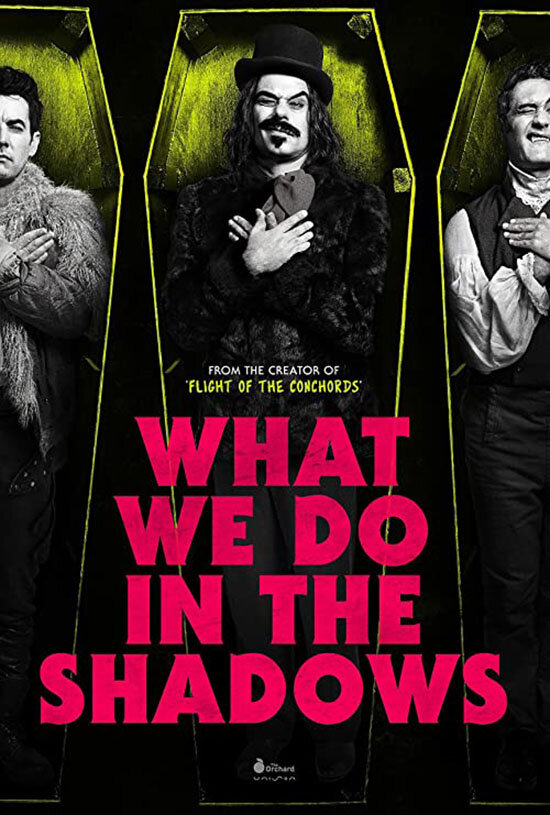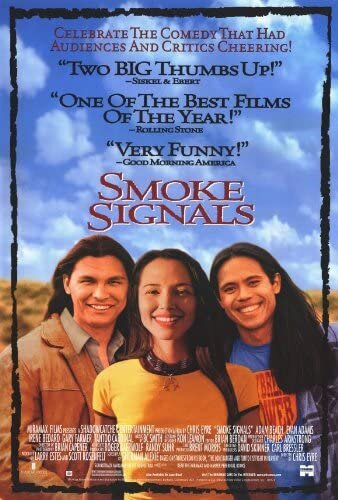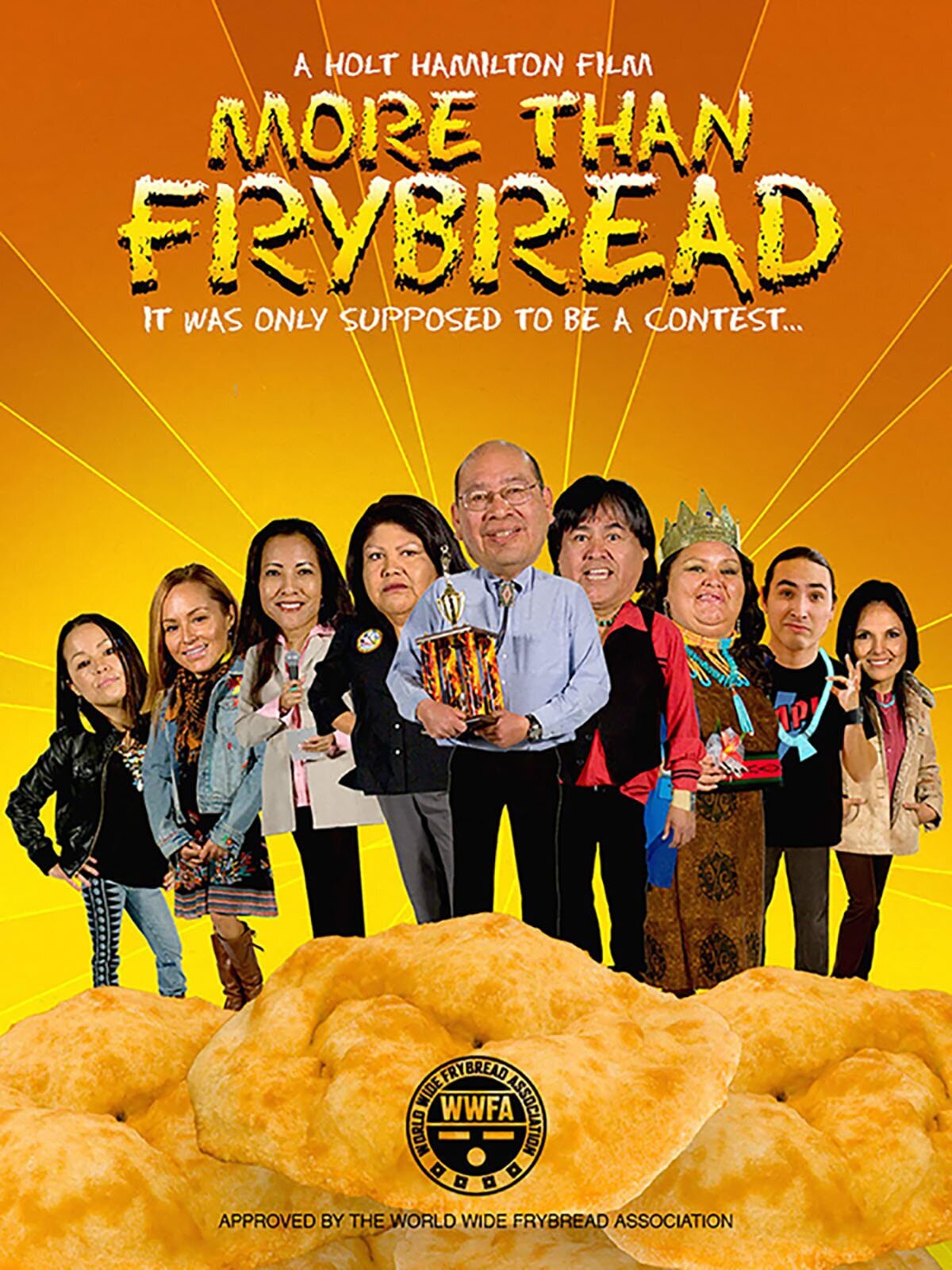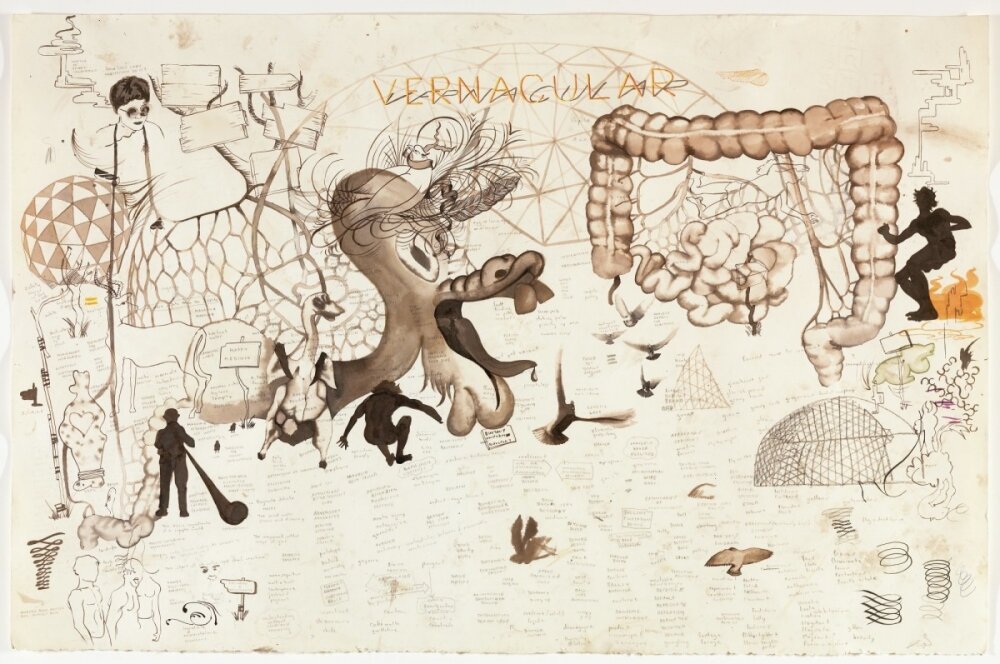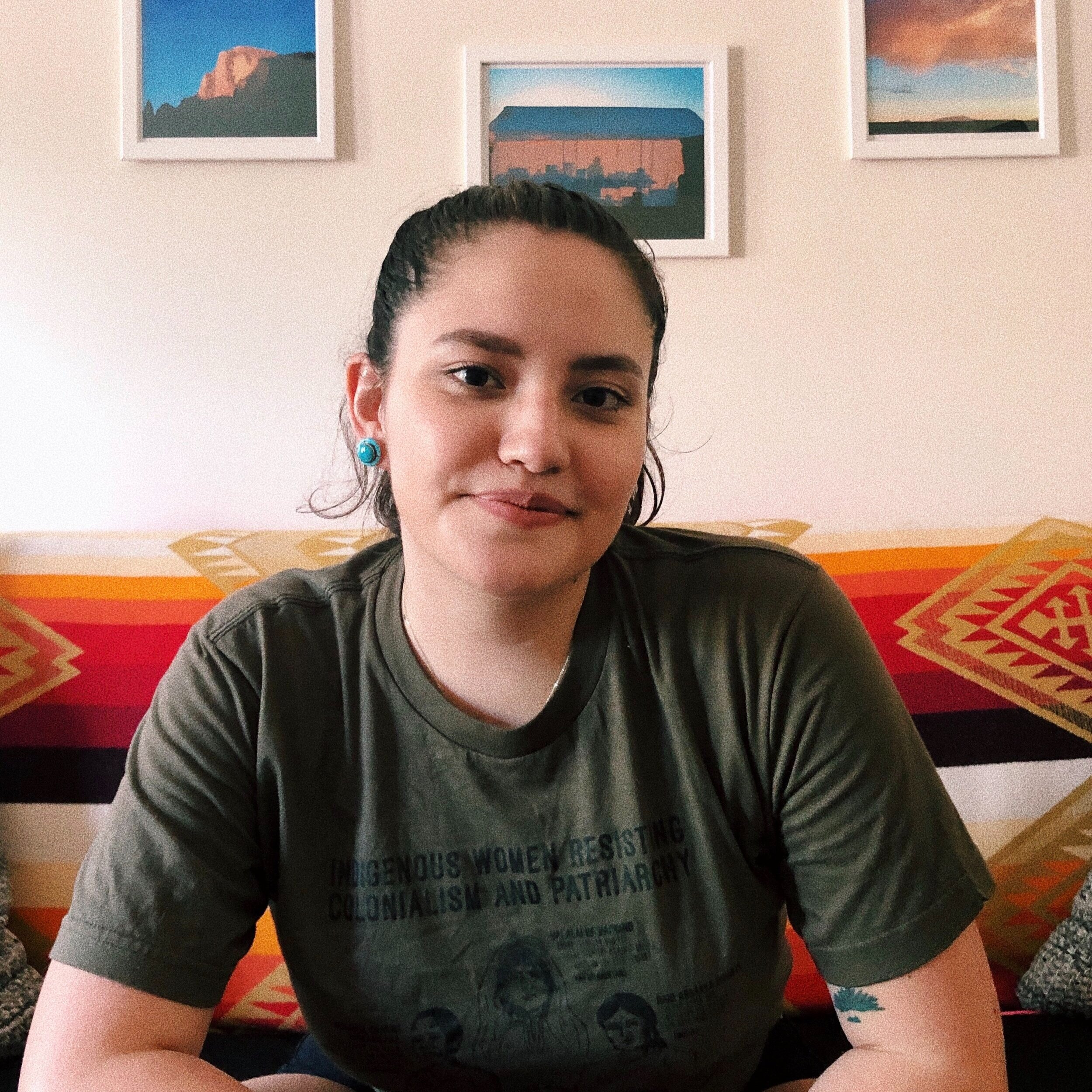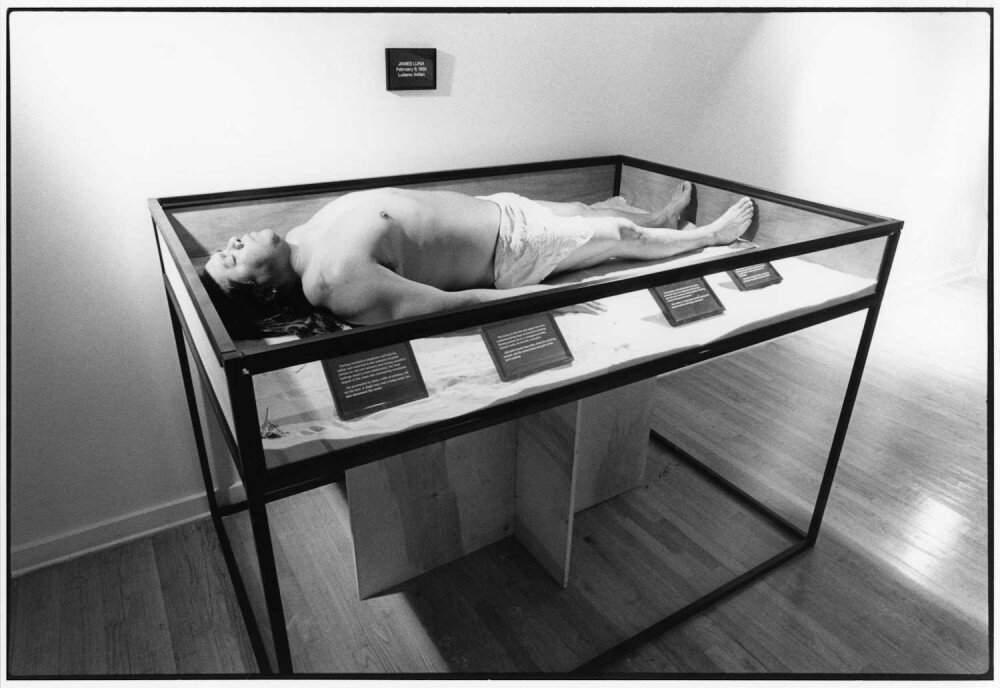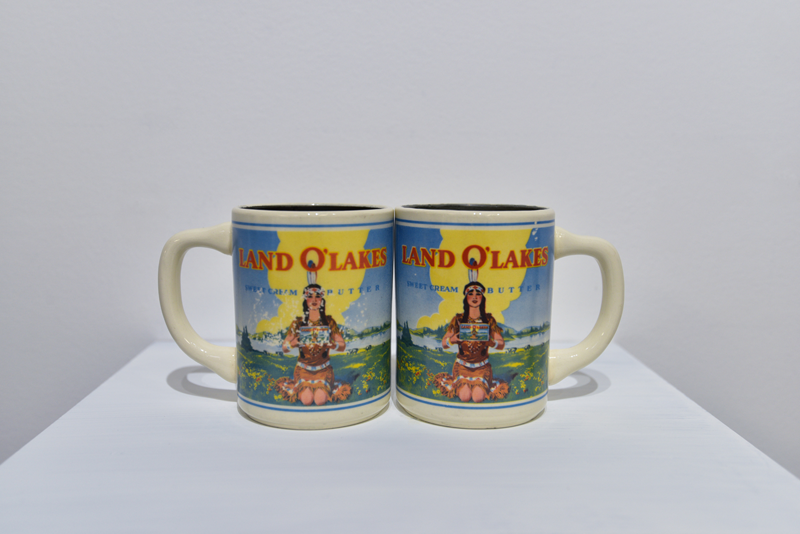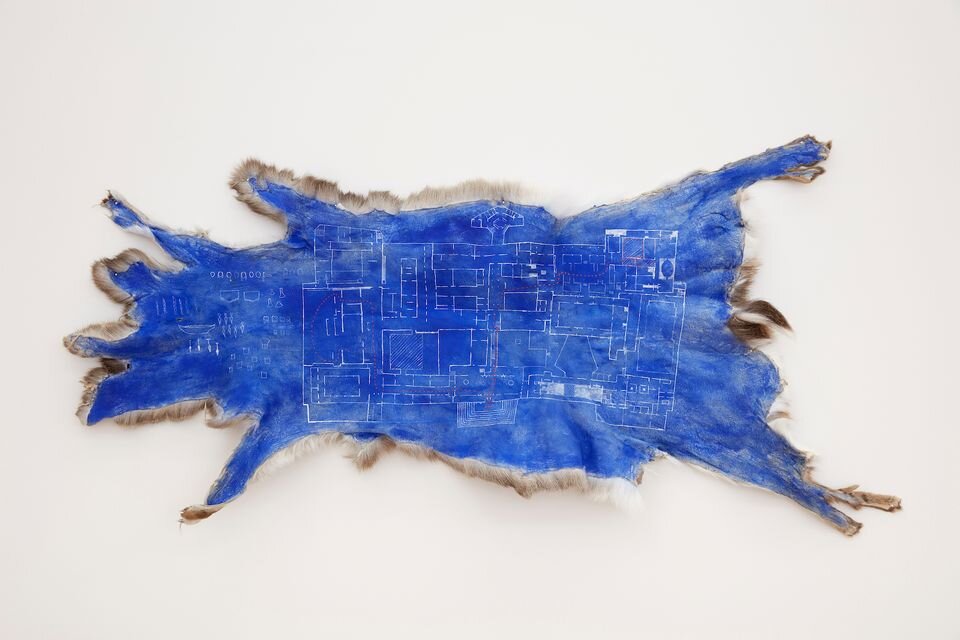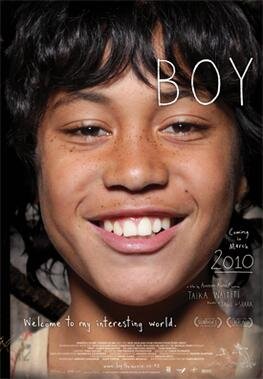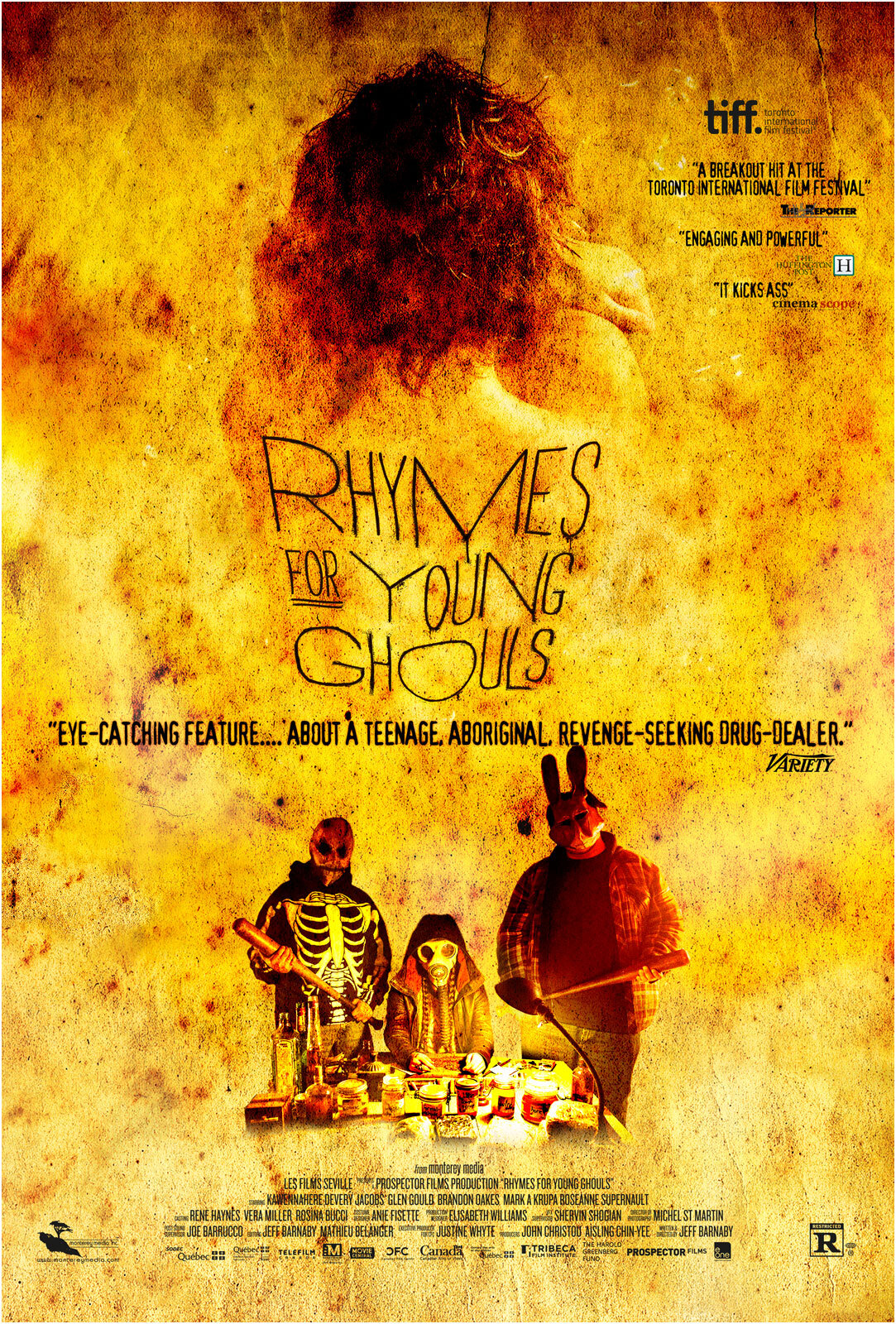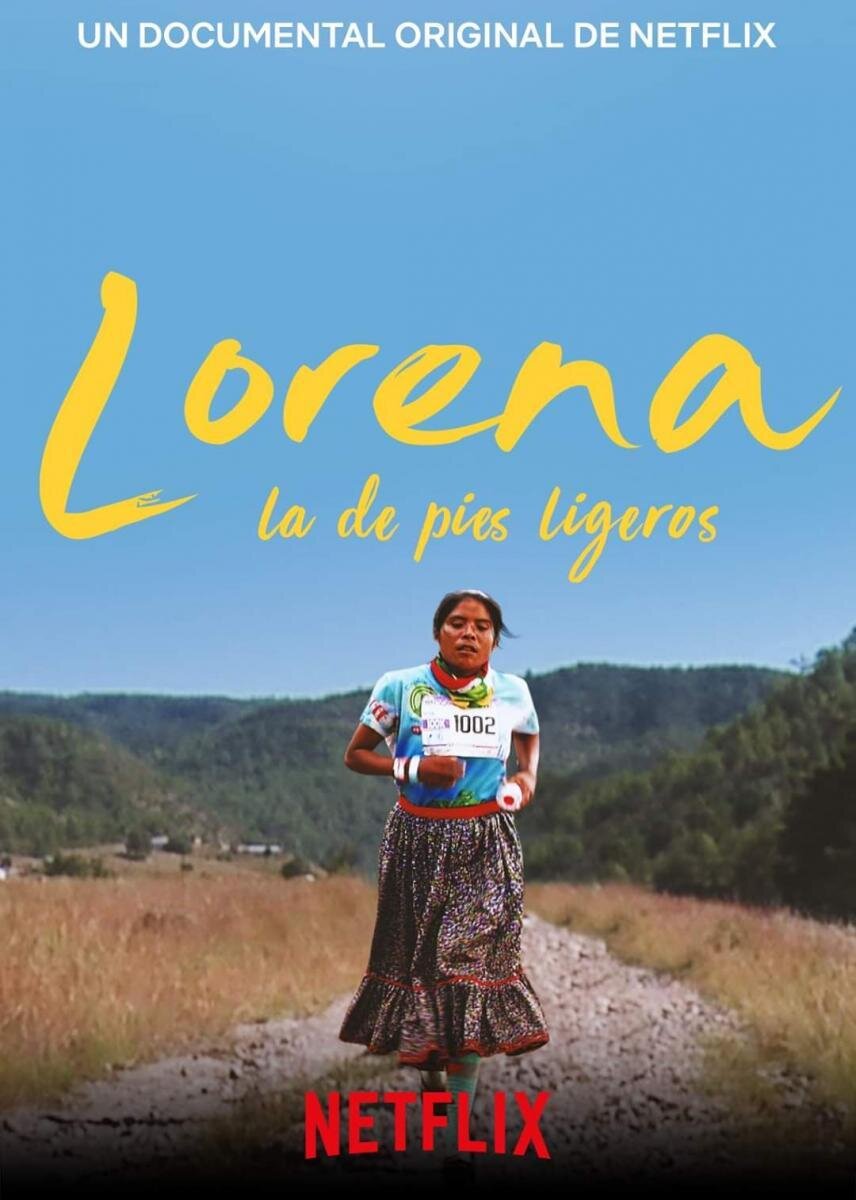Native American Heritage Month doesn't end in November
Tomorrow is the last day of November, which means it’s also the last day of Native American Heritage Month 2020.
This year’s celebrations were bittersweet. With COVID-19 cases rising all over the country, it wasn’t possible for us to gather in celebration like we usually do. But we were able to come together in ways we wouldn’t have in the past.
At our Panel Indigeneity in the 21st Century, you joined in from all corners of Turtle Island to hear our panelists talk about their lives, families, and identities. In our Decolonize Your Diet post, our home chefs invited you into their kitchens to share traditional meals.
We put them up online so you can view them whenever you want, wherever you want. We believe Native American Heritage Month does not and should not end in November.
In that spirit, we’ve asked The Chapter House Board to share their favorite Indigenous films, books, and artists/musicians with you so you can continue to celebrate well into December and beyond.
Favorite Movies
What We Do In The Shadows (2014)
Directed/written by/starring Taika Waititi (Māori) and Jemaine Clement (Māori), What We Do In The Shadows is a mockumentary that follows vampire housemates (Jemaine Clement, Taika Waititi, Jonathan Brugh) as they try to cope with the complexities of modern life and show a newly turned hipster (Cori Gonzalez-Macuer) some of the perks of being undead.
Where to watch: rent it on Amazon Prime or Youtube for $2.99.
Smoke Signals (1998)
Directed by Chris Eyre (Cheyenne and Arapaho), written by Sherman Alexie (Spokane-Coeur d’Alene), and starring Adam Beach (Anishinaabe) and Evan Adams (Coast Salish), Smoke Signals is unique for having an all-Native production team. It is a Native classic.
Where to watch: rent it on Amazon Prime or Youtube for $2.99.
More Than Frybread (2012)
Starring Tatanka Means (Oglala Lakota, Omaha, and Diné) and featuring a mostly Native cast, More Than Frybread is a mockumentary about a frybread-making contest between Arizona’s 22 tribes. Director/Screenwriter Holt Hamilton is not Native himself, but his production company Holt Hamilton Films makes it their mission to share Indigenous stories.
Where to watch: free with an Amazon Prime subscription.
Favorite Books
Love Medicine, by Louise Erdrich (Anishinaabe)
Set on and around a North Dakota Ojibwe reservation, Love Medicine is the epic story about the intertwined fates of two families: the Kashpaws and the Lamartines.
Where to read: always check your local library first! Or buy it off of Thrift Books for as little as $3.99.
Indian Affairs: Laws and Treaties, All Volumes, compiled by Charles J. Kappler
NOT written by an Indigenous author, but it is an extremely important compilation of all (broken) treaties between all Native Nations and the US Federal Government. A very important read to begin to even begin to understand the background of all Indigenous issues and how to implement solutions.
Where to read: you can read it for free online on OkState’s Digital Library.
Braiding Sweetgrass: Indigenous Wisdom, Scientific Knowledge, and the Teachings of Plants, by Robin Wall Kimmerer (Citizen Potawatomi)
In her book, Braiding Sweetgrass: Indigenous Wisdom, Scientific Knowledge, and the Teachings of Plants, Kimmerer implores us to reflect on the relationship that Indigenous people have had with the land and all living things. Indigenous, a botanist, and a professor, she combines her scientific knowledge with the cultural wisdom she learned from her family about our relationship with nature.
Where to read: check your local library, or buy from bookshop.org here.
Favorite Artists
Cannupa Hanska (Mandan, Hidatsa, Arikara, Lakota)
Marie Watt (Seneca)
Brian Jungen (Dane-zaa)
Jeffrey Gibson (Mississippi Choctaw-Cherokee)
Favorite Movies
This May Be The Last Time (2014)
Directed by Sterlin Harjo (Seminole-Muscogee), this documentary film starts when in 1962 Pete Harjo, the director's grandfather, mysteriously went missing after his car crashed on a rural bridge in Sasakwa, Oklahoma. Members of his Seminole and Muscogee community searched for him while singing songs of faith and hope that had been passed on for generations, with roots in both Scottish hymn lining and African American music.
Where to watch: you can rent it on Amazon Prime for $4.99 or Youtube for $3.99.
Dance Me Outside (1994)
Starring Ryan Rajendra Black (Saulteaux) and Adam Beach (Anishinaabe), Dance Me Outside is about aimless young men living on the Kidabanesee Reserve in Canada When the friends find the murdered body of a woman they know, her white killer receives only a two-year sentence. While considering going away to school in Toronto, the buddies plot revenge with another recently paroled friend.
Where to watch: you can rent it on iTunes for $3.99.
Favorite Books
The People Shall Continue by Simon J. Ortiz (Acoma Pueblo), Illustrations by Sharol Graves (Absentee Shawnee)
Told in the rhythms of traditional oral narrative, this powerful telling of the history of the Native/Indigenous peoples of North America recounts their story from Creation to the invasion and usurpation of Native lands. As more and more people arrived, The People saw that the new men did not respect the land. The People witnessed the destruction of their Nations and the enslavement of their people. The People fought hard, but eventually agreed to stop fighting and signed treaties. Illustrated.
Where to read: check your local library first or purchase on Bookshop.
47,000 Beads by Koja & Angel Adeyoha (Eastern band of Cherokee and Lakota), Illustrations by Holly McGillis
Children’s book. Peyton loves to dance, and especially at pow wow, but her Auntie notices that she's been dancing less and less. When Peyton shares that she just can't be comfortable wearing a dress anymore, Auntie Eyota asks some friends for help to get Peyton what she needs. Illustrated.
Where to read: check your local library first or order online from Flamingo Rampant.
Le centre du monde: Une virée en Eeyou Istchee Baie-James avec Romeo Saganash by Emmanuelle Walter
After publishing her book Stolen Sisters (Soeurs Volées in French), which is about missing and murdered Indigenous women in Quebec, Emmanuelle Walter encountered Romeo Saganash (Cree) and grew interested in the Cree Nation. She pitched a newspaper article about Eeyou Istchee, but her publisher suggested she instead write it as a short book. The result is Le Centre du monde: Une virée en Eeyou Istchee Baie-James avec Romeo Saganash. In French.
Where to read: you can order online here.
Favorite Movies/TV Shows
Letterkenny (2016)
Not an entirely Native show, but it features Kaniehtiio Horn (Mohawk) and has a significant Native contingency. All the Native scenes are written by Natives; it is one of the best tv representations of Natives I’ve seen in a long time!
Where to watch: free with a Hulu subscription.
Before Tomorrow (2008)
Produced by Isuma TV, an all-Inuit led production company, Before Tomorrow is the saddest, most heartbreaking movie I’ve ever seen, but really great. It is set in a small Inuit community in the Nunavik region of northern Quebec in the 1840s, and stars Madeline Ivalu as Ninioq, an Inuk elder isolated with her grandson Maniq (Paul-Dylan Ivalu) after most of their community perishes from smallpox transmitted by strange traders.
Where to watch: you can buy it on DVD on Amazon.
Favorite Books
Mohawk Interruptus: Political Life Across the Borders of Settler States by Audra Simpson
Focusing on Kahnawà:ke, a Mohawk Indian reserve located in present-day Canada with ties to the Iroquois Confederacy whose territories interrupt the current settler-colonial nation-state border, this book explores the complexities of Mohawk sovereignty along the U.S.-Canadian border offering critical insights into the fraught past and present relationships between Indigenous and settler societies.
Where to read: check your local library or buy it on Bookshop.
Almanac of the Dead by Leslie Marmon Silko
In its extraordinary range of character and culture, Leslie Marmon Silko’s (Laguna Pueblo) Almanac of the Dead is fiction on the grand scale. The acclaimed author of Ceremony has undertaken a weaving of ideas and lives, fate and history, passion and conquest in an attempt to re-create the moral history of the Americas, told from the point of view of the conquered, not the conquerors.
Where to read: check your local library first, or purchase it on Bookshop or Thriftbooks.
Choctalking on Other Realities by LeAnne Howe
The collected stories/essays in Choctalking on Other Realities, by author LeAnne Howe (Choctaw), depict, with wry humor, the contradictions and absurdities that transpire in a life lived crossing cultures and borders.
Where to read: of course, please check your local library first! Or purchase on Bookshop or Thriftbooks.
Favorite Artists
Nicholas Galanin (Tlingit and Unangax̂) is a multi-disciplinary artist and musician from Alaska. His work often explores a dialogue of change and identity between Native and non-Native communities.
Natani Notah (Diné, Lakota, and Cherokee) is an interdisciplinary artist and educator. Her work has been exhibited at the Tucson Desert Art Museum, Tucson; Gas Gallery, Los Angeles; The Holland Project, Reno; Mana Contemporary, Chicago and SOMArts Cultural Center, San Francisco. Notah has received awards from Art Matters, International Sculpture Center, and the San Francisco Foundation. She has been published in Sculpture Magazine and has had artist residencies at the Vermont Studio Center, Grounds for Sculpture, and the Headlands Center for the Arts. Notah holds a BFA with a minor in feminist, gender, and sexuality studies from Cornell University and an MFA from Stanford University.
James Luna (February 9, 1950 – March 4, 2018) (Payómkawichum, Ipi, and Mexican-American) was a performance artist, photographer and multimedia installation artist. His work is best known for challenging the ways in which conventional museum exhibitions depict Native Americans. With recurring themes of multiculturalism, alcoholism, and colonialism, his work was often comedic and theatrical in nature. In 2017, he was awarded a Guggenheim Fellowship.
Favorite Movies
Boy (2010)
Written and directed by Taika Waititi (Māori). The year is 1984, and on the rural East Coast of New Zealand Michael Jackson's ''Thriller'' is changing kids' lives. ''Boy'' (James Rolleston, Māori) is a dreamer who lives with his brother Rocky, a tribe of deserted cousins and his Nan. While Boy idolizes Michael Jackson his other hero is his father, Alamein (played by Taika Waititi), who is a distant memory to him, but is the subject of Boy's dreams and fantasies. Boy imagines his father as a deep sea diver, a war hero and a close relative of Michael Jackson (he can even dance like him), but in reality he's ''in the can for robbery''. When Alamein returns home after seven years away, Boy is forced to confront the man he thought he remembered find his own potential and learn to get along without the hero he had been hoping for. Inspired by the Oscar nominated ''Two Cars, One Night'', Boy is the hilarious and heartfelt coming-of-age tale about heroes, magic and Michael Jackson.
Where to watch: buy or rent on YouTube, starting at $3.99.
Rhymes For Young Ghouls (2013)
Directed and written by Jeff Barnaby (Mi'kmaq). Set in 1976 on a reserve in the context of the residential school system, and presented from the perspective of Aila (Miika Whiskeyjack, Cree). Although it tells a fictional story of the teenager and her plot for revenge, it is based on the history of abuse of the First Nations people by Canadian government agents, including a large number of reported cases of the mental and physical abuse of residential school children.
Where to watch: rent it on Amazon Prime for $3.99 or YouTube for $4.99.
Lorena, la de pies ligeros (2019)
This documentary follows Lorena Ramírez, of Mexico’s Rarámuri community. She doesn't need fancy and expensive running shoes to conquer the most difficult trails. She doesn't need the latest technology in sports clothing either as some other runners do. She just needs her old sandals and her powerful will. She has won some of the hardest races in Mexico, like the Guachochi Ultramarathon in 2017, where she ran 100 kilometers wearing her sandals and traditional dress.
Where to watch: watch on Netflix with a subscription.
Favorite Books/Poems
Love Beyond Body, Space, and Time by Tanaya Winder (Duckwater Shoshone)
Becoming a Ghost by Tanaya Winder (Duckwater Shoshone)
Distracted from COVID-19, Attention Shifts to MIA Maiden from Land O’Lakes Butter Box by Tiffany Midge (Hunkpapa Lakota)
Bury My Heart at Chuck E. Cheese’s by Tiffany Midge (Hunkpapa Lakota)
Bury My Heart at Chuck E. Cheese’s is a powerful and compelling collection of Tiffany Midge’s musings on life, politics, and identity as a Native woman in America. Artfully blending sly humor, social commentary, and meditations on love and loss, Midge weaves short, stand-alone musings into a memoir that stares down colonialism while chastising hipsters for abusing pumpkin spice.
Where to buy: check your local library or purchase it from Bookshop
Favorite Artists
Shelley Niro (Mohawk) is a filmmaker and visual artist from New York and Ontario. She is known for her photographs using herself and female family members cast in contemporary positions to challenge the stereotypes and clichés of Native American women.
Josué Rivas (Mexica and Otomi) is an Indigenous Futurist, creative director, visual storyteller and educator working at the intersection of art, journalism, and social justice. His work aims to challenge the mainstream narrative about Indigenous peoples, build awareness about issues affecting Native communities across Turtle Island, and be a visual messenger for those in the shadows of our society.



